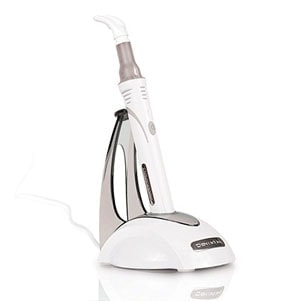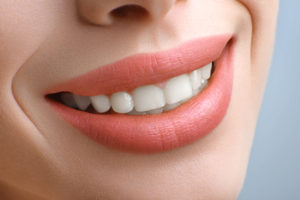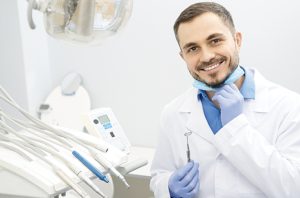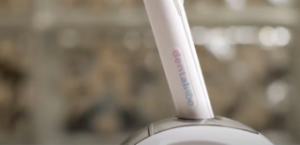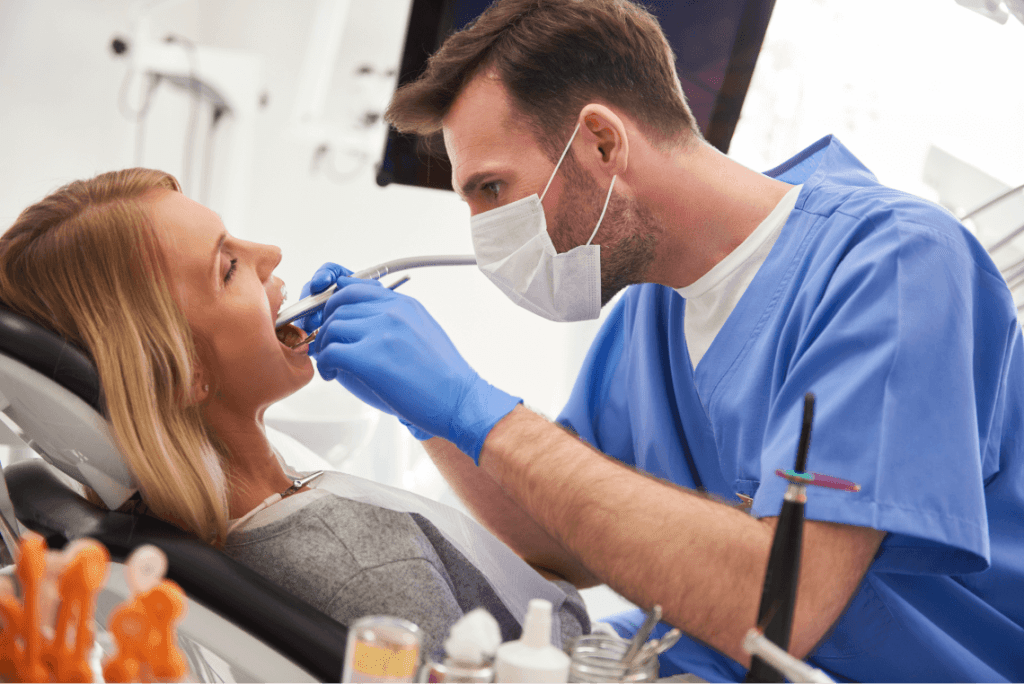Dental braces help straighten teeth in order to create a beautiful, healthy smile. Wondering if dental braces are right for you or your child? Get answers to some of the most frequently asked questions about braces.
1. How do braces work?
If your teeth are crooked, overcrowded, or too widely spaced apart, you’ll likely need orthodontic work to reposition your teeth. Orthodontics is a sub-specialty of dentistry involving correction of teeth and jaw irregularities. An orthodontist uses dental appliances such as metal or plastic bands, retainers, and assorted headgear to correct teeth asymmetry and jaw misalignment, including conditions such as overbites or underbite.
The way bands and wires straighten teeth is fairly simple. By applying gentle but consistent pressure, they gradually reposition the teeth. Orthodontists affix bands to the teeth using dental adhesive and then thread “arch” wires through small bracket holes. Visiting an orthodontist once a month is necessary to have the wires tightened. Depending on the severity of teeth misalignment, the time it takes to move teeth to the desired position averages between 12 and 16 months.
2. What is a good age to get braces?
Dentists recommend that children delay orthodontic work until all of their permanent teeth have grown in, or erupted. The American Association of Orthodontists also suggests that children visit an orthodontist at least one time before age seven. A pediatric orthodontist can determine if a child’s teeth, jaw, and associated facial components are developing normally.
Adults of any age can have their teeth straightened with braces. However, it may take longer to move teeth as you age because the bones have stopped growing. Also, older adults tend to have various degrees of gingivitis (gum disease) and tooth decay. The AAO urges adults to visit their dentist for an examination and cleaning before considering dental braces.
3. Can braces ruin your teeth?
Orthodontic work will not ruin your teeth. However, it’s important to brush and floss your teeth carefully if you have braces. Food particles trapped in the tiny spaces around bands and wires can contribute to plaque development if not removed by regular brushing and rinsing. Plaque may demineralize small areas of teeth, leading to cavities or causing dull white spots to appear on dental enamel.
You can significantly reduce the risk of plaque by:
- Brushing after every meal using a soft-bristled toothbrush and fluoridated toothpaste
- Cutting down on consumption of sugary beverages and foods
- Rinsing with an alcohol-free mouthwash (pharmacies carry special mouthwashes for people wearing orthodontic appliances)
- Using waxed floss to remove debris under wires and between braces
- Avoiding chewy, crunchy, or sticky foods that could displace wires and bands
4. What are the disadvantages of braces?
In addition to potential tooth discoloration, orthodontic work may also:
- Result in having short tooth roots. This happens due to dissolution of bone during teeth movement. While new bone growth occurs to replace any bone loss, it is possible but rare to lose a small portion of a tooth root.
- Fail to achieve desired results. This is also another rare occurrence but it can happen in cases of severe teeth misalignment. Once the bands are removed, you will need to wear a retainer to ensure the newly positioned teeth do not move back into their former positions.
Failure to wear a retainer as instructed is the number-one reason teeth don’t remain straight after wearing braces. Thermoplastic retainers are customized to fit into the roof of your mouth and allow you to wear rubber bands over metal loops connected to the retainer. The pressure exerted by the rubber bands is not as strong as pressure exerted by arch wires. However, retainers are essential for promoting tooth root growth and stabilizing position of teeth.
5. Do braces fix teeth permanently?
For the most part, braces fix teeth permanently. Some people may see their teeth move slightly after completing orthodontic work, but the movement is typically minimal enough that it does not require further treatment.
Wearing a fixed or removable retainer as prescribed by an orthodontist is the leading factor that determines whether teeth stay in place after orthodontic treatment.
6. Are braces painful?
Some mouth discomfort is common during orthodontic work. As your teeth start responding to the pressure exerted by brackets and wires, you may experience some mouth and jaw soreness. Most orthodontic patients report that this soreness diminishes within two to three weeks as the process of repositioning teeth begins.
When an orthodontist tightens your wires during monthly visits, your mouth may become sore again for a couple of days, until the teeth adjust to this new pressure. Taking Tylenol can relieve discomfort until it naturally subsides.
7. Do braces cause bad breath?
Orthodontic work does not cause bad breath. However, lack of good oral hygiene while wearing braces or retainers does cause bad breath.
You can reduce your risk of halitosis (bad breath) by:
- Brushing after every meal and flossing twice a day
- Rinsing with a fluoridated, alcohol-free mouthwash
- Drinking plenty of water to keep your mouth hydrated
- Using a water pik to remove stubborn food particles
- Avoiding foods that directly cause bad breath — onions, garlic, and cheese, for example
- Keeping all appointments with your orthodontist
8. How do you sleep with braces on?
Once you get used to dental braces, you’ll likely forget you are wearing them. Some people have problems sleeping with them during the first few months of treatment because the inside of their mouth is simply not used to being rubbed by metal or plastic brackets.
Dental wax is a safe, effective way to put a “buffer” between brackets and the sensitive oral tissue in your mouth. Made from beeswax, carnauba wax ,or paraffin, dental wax sticks to pointed surfaces in the mouth to temporarily smooth sharp edges. In addition to reducing irritation caused by brackets, dental wax is useful for protecting cracked or chipped teeth until they can be repaired.
Oral topical anesthetics that are normally used to relieve toothache pain can also relieve mouth irritation caused by orthodontic appliances. If you have trouble sleeping while wearing brackets or retainers, it’s better to use dental wax at night and oral numbing gel during the day. The effects of oral anesthetic gel last for about an hour before more gel needs applied.
9. Is it okay to use mouthwash with braces?
Yes, you can use mouthwash with braces. In fact, dentists urge people wearing braces and other orthodontic appliances to rinse with an antibacterial mouthwash twice a day. Fluoridated mouthwash helps increase the pH level in your mouth while helping remineralize dental enamel. Low oral pH levels contribute to bacteria, plaque, and tooth decay.
Need a dentist? DentalVibe dentists are committed to using the latest technologies to provide pain-free dentistry to their patients. Visit our directory to find a certified pain-free dentist near you!

